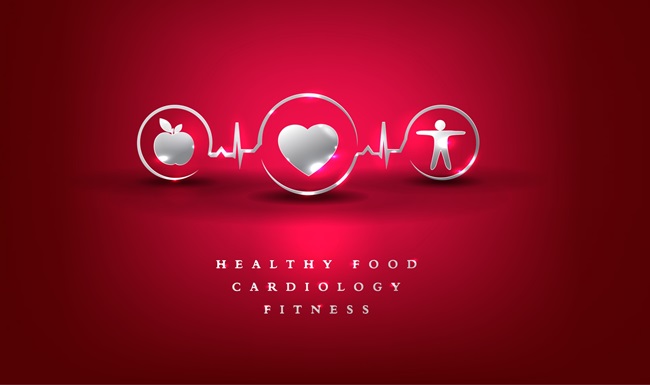By Maria Jauhar, MD
With February being American Heart Month, it is a great time to reassess our diet and lifestyle habits – as these are often our best weapons to fight cardiovascular disease. While it is common perception that changing behaviors related to diet and exercise is extremely difficult, in reality, if you take simple steps, you can make permanent changes that will have a positive impact on your heart health.
Here’s where you can begin:
1. Expend 100% of your calories. At a minimum, use up all the calories you consume. This means that you need to know how many calories you should be consuming just to maintain your current weight. While food labels are typically based on a 2,000-calorie diet, your gender, sex, and physical activity may require more or fewer calories. To achieve weight loss, calories out need to exceed calories in.
2. Get physical. Physical activity is anything that makes you move your body and burn calories. This includes things like climbing stairs or playing sports, as well as aerobic exercises such as walking, jogging, swimming or biking. The American Heart Association recommends at least 30 minutes of moderate-intensity aerobic activity at least five days per week for a total of 150, or at least 25 minutes of vigorous aerobic activity at least three days per week for a total of 75 minutes, or a combination of moderate- and vigorous-intensity aerobic activity. For lowering blood pressure and cholesterol, the AHA recommends an average of 40 minutes of moderate- to vigorous-intensity aerobic activity three or four times per week.
3. Mix it up. You may be watching what you eat, but unless you are including all of the food groups in your diet, your body might not be getting the nutrients it needs to be healthy. Your diet should include a variety of whole grains, fruits and vegetables, skinless fish and poultry, nuts and legumes, low-fat dairy products, and non-tropical vegetable oils.
4. Know your limits. Stay away from – or at least limit your consumption of – red meat, beverages sweetened with sugar, trans fats, saturated fats, sodium, and sweets. If eliminating red meat from your diet is all but impossible for you, then make sure you select the leanest cuts available.
5. Drink in moderation. If you drink alcohol, then enjoy no more than two drinks per day if you are a man and one drink per day if you’re a woman.
6. Butt out. In other words, don’t smoke tobacco, don’t chew tobacco, stay away from e-cigarettes, and avoid second-hand smoke.
7. Remember, something is always better than nothing. You don’t have to tackle this entire list at once in order to improve your heart health. Pick one of the suggestions above and start there. Once you are comfortable with the change, add a second suggestion. Keep working through the list until you have incorporated all six of the suggestions into your daily routine. Remember, everyone has to start somewhere. Even if you’ve been sedentary for years, you can make a small change today that leads to big changes in the future.
If you need help getting started, then schedule an appointment with to discuss your needs. Call us at 912-897-6832 or click here for our online appointment request. Here are services we provide that can improve your heart health:
-
Medical weight loss programs
Preventive medicine programs, including various screenings
Health lifestyle management programs, including smoking cessation, and food and nutrition counseling





